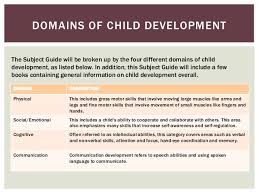This Christmas I received a special and unique gift. My sister took me to Cancun, Mexico. She took me to an all-inclusive resort called Excellence. It is a spectacular place full of great service, mouth watering food, and caters only to adults. We had beautiful skies, warm water and met lots of interesting people from all over the world. I recommend you check out the place. It was the last in luxury, service and relaxation. It definitely lives up to its name!
As an aspiring entrepreneur, I was so excited that on my fifth day there I met the inventor of the most interesting self-defense weapon I have ever heard of. I was water walking in the pool, when I overheard a lady discussing her worries for her college aged daughter who was walking campus at night. Dani one of the wives of the founders and it's spokesperson was saying ,"this is the best thing a women can carty and be both safe and get way from her attacker." I just had to turn around and check out this product. She showed me how to hold it and squeeze, three claws came out. "I excitedly asked is this the Tiger Lady?" All bedlam broke loose. LOL! Apparently, I was the first person to recognize this product when shown what it was. The family was ecstatic to meet someone who recognized their product. Then I met Josh the marketing director for the Tiger Lady. He asked me a lot of questions about where I heard about the product, what I thought of it and would I use it? I answered his questions and told him I would use it and recommend all my fellow visually impaired folks add women use it too. tigerlady.com Afterwards, we talked some more and I found out Josh and his wife Heather were with his family on vacation while their six month old son was back in DC with her parents. I was so pleased for them and I told them so.
I was excited to see a couple take the time for each other especially because they were both so busy with full-time jobs, starting a new business, and being new parents. Josh's Mom told me that he and Heather were sleeping in, getting to the nightclub for dancing, and generally spending good quality time together. I loved hearing that, I told them their relationship is the foundation of their family and taking time to build, preserve, and shore up this relationship was the glue which would hold their family together!
After thinking about this I asked Josh if I could use he and Heather's Christmas vacay as an example to show other young and even older couples what it can look like to keep your marriage the priority in your lives as a way to do these three things.
- Keeping in mind you are a man and a woman, and a husband a a wife before you are parents.
- Remind both of you the foundation of your family life is the relationship between the two of you.
- Give your kids a living, breathing, vibrant example of what it means to be an energetic, happy, fulfilled couple who love one another deeply and are committed to one another.
I really enjoyed my Christmas vacation the best present ever! I got to go to the beach, meet some interesting people, got a great new self-defense tool, and found a great example of a couple doing it right. I am so grateful to my sister for an amazing trip. I hope your Christmas went as well as mine! I am looking forward to 2018.
Believe in Parenting!
Want more information? ptanda.org












